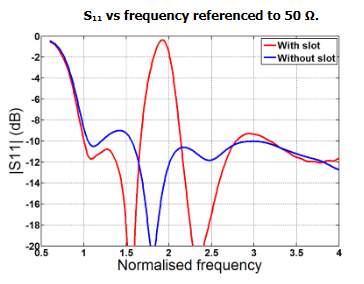Signal Slot Vs Observer Pattern
- Signal Slot Vs Observer Pattern Download
- Signal Slot Vs Observer Pattern Free
- Signal Slot Vs Observer Patterns
How to emit a signal in whole of project? Then each class that they need this signal, call their own slot to do something. How to define a global signal that work in whole of project? Why should he do that exactly? By the way a slot (connected to a signal) is already an observer pattern. Reply Quote 1. 1 Reply Last reply. @lukasm said in Signal-slot-mechanism vs. Observer pattern - Good practice. Years ago I learnt about the observer pattern, where we usually have some class (the subject) which is observed by some observer. The observers register to the subject, and if the subject does some action, e.g., sets some new value, it notifies the observers.
Signals and slots is a language construct introduced in Qt for communication between objects[1] which makes it easy to implement the observer pattern while avoiding boilerplate code. The concept is that GUI widgets can send signals containing event information which can be received by other widgets / controls using special functions known as slots. This is similar to C/C++ function pointers, but signal/slot system ensures the type-correctness of callback arguments.[citation needed]
The signal/slot system fits well with the way graphical user interfaces are designed. Similarly, the signal/slot system can be used for other non-GUI usages, for example asynchronous I/O (including sockets, pipes, serial devices, etc.) event notification or to associate timeout events with appropriate object instances and methods or functions. It is easy to use and no registration/deregistration/invocation code need to be written, because Qt's metaobject compiler (MOC) automatically generates the needed infrastructure.
A commonly used metaphor is a spreadsheet. A spreadsheet has cells that observe the source cell(s). When the source cell is changed, the dependent cells are updated from the event.
Casinos and More in Rhinelander. Headed to Rhinelander for some gaming? As luck would have it, you'll find some casino hotels here, as well as plenty more to do. Visitors enjoy the fishing, boating, and shopping. Rhinelander has 147 accommodations, including 2 casino hotels. 
Alternative implementations[edit]
There are some implementations of signal/slot systems based on C++ templates, which don't require the extra metaobject compiler, as used by Qt, such as libsigc++, sigslot, vdk-signals, nano-signal-slot, neosigslot, Signals, boost.signals2, Synapse, Cpp::Events, Platinum and JBroadcaster. Common Language Infrastructure (CLI) languages such as C# also supports a similar construct although with a different terminology and syntax: events play the role of signals, and delegates are the slots. Another implementation of signals exists for ActionScript 3.0, inspired by C# events and signals/slots in Qt. Additionally, a delegate can be a local variable, much like a function pointer, while a slot in Qt must be a class member declared as such. The C based GObject system also provides similar functionality via GSignal.In D it is implemented by std.signals.
See also[edit]
Libraries[edit]
Java: sig4j - multi-threaded, type-safe, based on the FunctionalInterface annotation introduced in Java 8.
C++: vdk-signals - thread-safe, type-safe, written in C++11 with atomic variables.
References[edit]
- ^'Signals & Slots - QtCore 5.1'. Qt Project. 2013-07-04. Retrieved 2013-07-04.

Copyright (C) 2016-2018 David Capello
Library to use the observer pattern in C++11 programs withobservable/observer classes or signals/slots.
Signal Slot Vs Observer Pattern Download
Features
- Generate an observable notification/signal from multiple threads
- Add/remove observers/slots from multiple threads
- Erase/disconnect an observer/slot from the same observable notification/signal
- Reconnect an observer in the same notification
Observable
An observable Widget:
An example
Signal
Signal Slot Vs Observer Pattern Free
Tested Compilers
Signal Slot Vs Observer Patterns
- Visual Studio 2015
- Xcode 7.3.1 (
-std=c++11) - GCC 4.8.4 (
-std=c++11)



